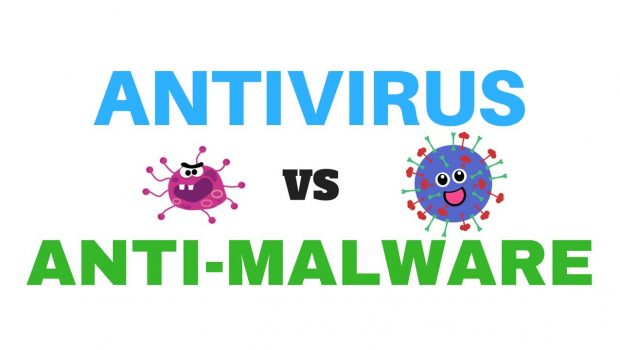Anti-Malware vs. Anti-Virus – What Should You Use for Complete Cyber Security?
Many technical terms are used in cybersecurity. It is only apparent that you will be confused. Two of the most common terms you face are anti-virus and anti-malware. When it comes to your business, it is crucial for you to be aware of the differences between the both. However, along with anti-virus and anti-malware, there are other terms you need to know about. If you are serious when it comes to the security and the protection of your data from potential threats, take time and educate yourself about these terms and how knowing them can protect your business.
Check the range of security products available for protecting your system
When you are looking for cybersecurity, check the different software products available in the market and if you are not sure about them, ask experts to assist you. The secret here is to choose the products that are important and right for your business.
Check the market today, and you will find a host of products like anti-spyware, anti-malware, and anti-virus. Read on below to know what is right for you and how can you protect your business from cyber threats-
Know the difference
At the outset, malware is a general term for any malicious code that targets to harm, steal data or serve any criminal intent. Malware covers ransomware, spyware, Trojans, worms, and viruses as per Microsoft. In short, all viruses are malware. However, all malware are not viruses.
Viruses refer to malicious programs that replicate and spread. They can be harmful malware and might include Trojans and worms. They infect your computer and will reproduce for spreading. They consume the processing power of your device. The device weakens and needs to be formatted.
Where is the confusion?
There is significant confusion between anti-virus and anti-malware today. When personal computers became household items, viruses were the popular malware that infected the systems, and this led to it becoming a blanket term for all malware.
Anti-virus, on the other hand, has become a standard term for cybersecurity as a whole. There are a whole lot of companies that have named their security programs anti-virus. These programs detect issues concerning malware, and it is here that you must determine whether the software covers the cybersecurity issues that you wish to avert. You may visit websites that sell anti-malware and anti-virus products. Check to see the best antivirus software of 2018 to find out if it addresses your issue or not. Therefore, when it comes to choosing between an anti-malware and anti-virus, you must know what cybersecurity issues you wish to avoid. Address them by buying the correct software. In case you are confused, you may ask experts to help you online. You may contact them on seller websites or discussion forums with your problems. If you have a friend who is technically savvy, you may ask for recommendations. However, ensure you are aware of the problem you wish to avert and the product you are about to install to avoid it.
Additional terms about Cybersecurity you should know
There are other cybersecurity terms that you should be aware of when it comes to the protection of your system. Spyware is a term that you will hear a lot about in the field of cybersecurity. It is a software program that has been installed in the user’s system without his or her knowledge. This software has the onus to collect information relating to the user. It may include habits, personal information, and keystrokes. There is another kind of software program that is called Adware. It is a type of software program that gives you advertisements when you do not want them on your systems like excessive hyperlinks on every page you visit, endless pop-ups and more. Trojans and worms are the names of delivery methods of malicious codes and malware. The former often enters your system as a disguise in the form of a legitimate application whereas the latter infects your system and spreads rapidly through your computer network.
Understand what ransomware means for your system
Ransomware is intensely malicious for your system, and it enters in the form of a program that targets a primary system with a bid to extort you. This program threatens you with a ransom and blocks you from critical files and applications. It might also release sensitive and private information unless you pay the ransom. The amount might range from hundreds to thousands of dollars.
Invest in the comprehensive protection of your network of computers and servers. Identify what you are looking for when it comes to safeguarding your computer and before purchasing an anti-virus or an anti-malware software program research well. The product you buy must protect your system from all kinds of malware. In this way, you can be tension free and focus on your work better!















